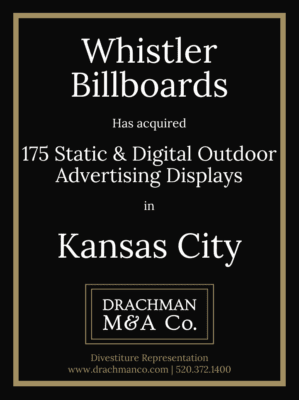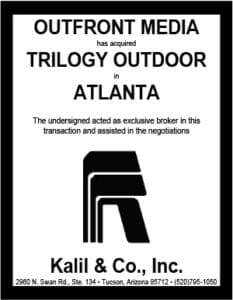
Lindmark Outdoor, a long time Texas-based operator and member of IBO and OAAA, scored a partial victory in a dispute over ownership of a billboard with its lessor, Remington. The fact pattern in Remington Sherman Automotive vs FMG North Texas is familiar, unfortunately, to most operators. Lamar entered a ground lease in 2010 with the predecessor to Remington, which contained the typical provision reserving ownership of the sign with the lessee: “All structures, equipment and materials placed upon the premises by [Lamar] shall remain the property of [Lamar] and may be removed by [them] at any time prior to or within a reasonable time after the expiration of the term hereof or any extension.” Lamar sold and assigned the sign and lease to FMG, now known as Lindmark, in 2012. Remington purchased the property from the lessor in 2018. Soon thereafter, Remington, as the new lessor, gave notice of termination of the lease. And, in doing so, the lessor also claimed ownership of the sign, prevented Lindmark from removing it, and even used the sign to advertise its car dealership. Lindmark sued in Grayson County Texas District Court, which granted to Lindmark a judgment awarding ownership of the sign and damages for conversion of it.
Remington appealed to the Court of Appeals of Texas, Dallas Fifth District, which issued an opinion on December 27, 2023, first of all affirming Lindmark’s ownership of the sign and the mandatory injunction allowing Lindmark to retrieve it. In doing so, the Appellate Court confirmed the billboard was a “trade fixture,” sufficient to sustain Lindmark’s claim of conversion. Specifically, the Court explained:
“The term ‘trade fixture’ refers to any article ‘annexed to the realty by [a] tenant to enable [the tenant] properly or efficiently to carry on the trade, profession, or enterprise contemplated by the tenancy contract or in which [the tenant] is engaged while occupying the premises, and which can be removed without material or permanent injury to the freehold…Trade fixtures are thus distinguishable from other fixtures and improvements made to real property in that trade fixtures are intended to be temporary and benefit the tenant’s trade, while other improvements and fixtures are intended to be permanent and enhance the real property…As between a landlord and tenant, ‘in favor of trade and to encourage industry, the greatest latitude is allowed, so that all fixtures set up for better enjoyment of trade are retained by the tenant’ as its removable personal property.”
The Court then scrutinized the quoted lease terms, and concluded they left “no doubt that both the lessor and the lessee objectively intended that the billboard structure would remain the lessee’s personal property and that the lessee could remove it when the lease ended.” And, as such, the Court went on to rule that Remington had wrongfully converted the billboard, or “trade fixture,” and awarded Lindmark the ownership and right to retrieve its billboard.
Unfortunately for Lindmark, the Appellate Court also reversed the damages awarded by the Trial Court against Remington for the conversion. Specifically, Lindmark established, and the Trial Court granted, that it would have earned $4,441 per month or $159,899 during the time Remington continued to convert the billboard, if it had been permitted to keep operating its billboard on Remington’s property. By contrast, however, the Appellate Court explained that “to recover damages for loss of the billboard’s use resulting from Remington’s conversion, [Lindmark] had to establish the profits it could have earned if Remington had not prevented it from removing and relocating the billboard. Instead, [Lindmark] presented evidence only of the amount of revenue [it] could have earned if Remington had allowed it to keep using the billboard on Remington’s property-a measure inconsistent with the legal and factual basis of [Lindmark’s} conversion claim.” Thus, without any evidence of the profits it would have enjoyed at another location if allowed to remove and relocate its billboard, Lindmark was therefore denied any damages by the Appellate Court.
By way of full disclosure, Lindmark is a good client of Rothfelder & Falick. However, we didn’t represent Lindmark in this case at the trial or appellate levels.
To receive a free morning newsletter with each day’s Billboard insider articles email info@billboardinsider.com with the word “Subscribe” in the title. Our newsletter is free and we don’t sell our subscriber list.
Paid Advertisement


















Good article!
Normally you just have to show your damages related to your particular case. Seems like a stretch to ask for damages on a “new relocated” sign in a completely different location? So many factors can impact that type of assertion; location, economy, view, etc. Very surprised they used this as the basis to nullify the damages, clearly the conversion caused damages!